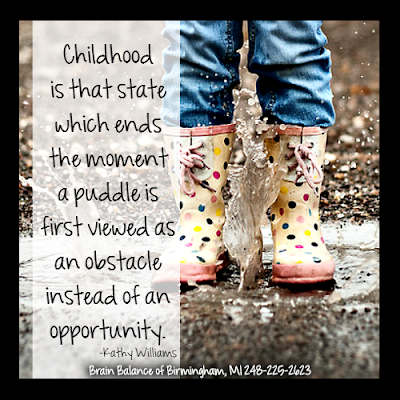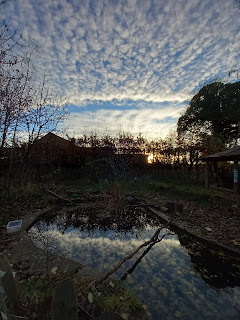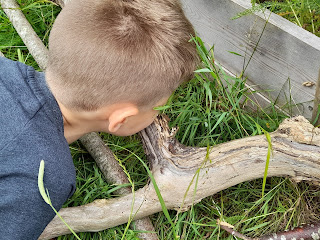So far, I've had one of those good weeks when everywhere I look there seems to be more evidence that Outdoor Learning is not just important but essential. It's something I believe - hence the job - but often it's not a pedagogy shared by all.
This week started with a weekend that celebrated both the Spring Equinox and International Forest Day, both of which were barely acknowledged on social media let alone any other kind of media! Both are days that ought to be celebrated in schools. The Vernal Equinox especially is a definitive acknowledgement of time that for millennia humans looked upon to follow seasons and define the passage of time. It pre-dates religions as we know them, it's universal, and it's all-inclusive. Understanding it means basic geography and science, includes maths and links to representation in art and writing and PSE links to how it makes you feel. The same can be said of Autumn Equinox, Summer Solstice and Winter Solstice. Each marks a season's end and start. In September the planet has a day where the Southern and Northern hemispheres have equal daylight, it's a shared global experience before one turns its season towards Autumn and the other towards Spring. The Winter Solstice marks the shortest day, or the longest night depending on how you choose to see it! And marks the point where mornings will start to get lighter and afternoons will begin to stretch into evenings. Midsummer Solstice means that evening stretches well into bedtimes. The longest day is the best excuse ever for a school picnic at the end of the day or the date for the school fete.
 |
|
For thousands of years, the dates were important in the human calendar, we may have created new ways to mark time yet none of them make these days obsolete. To celebrate them is to celebrate nature, to measure time the way flora, fauna, and the planet does. It isn't that continuing to acknowledge such things is traditional, or gives insight into history, it's that it helps to foster our relationship with nature. Human life is often perceived as separate from nature, growing alongside it, or at times dominating it, yet we are nature and nature is us.There is a growing call for the Natural World to be its own subject within the National Curriculum. The Wildlife Trusts champion a GCSE in Natural science:
“We think there's a gap in the curriculum that isn't encouraging a connection with the natural world, and at the same time, we know that young people are very much engaged in the debate on the environment and they understand what their role should be and could be in protecting for the future.” - Jill Duffy, CEO, OCR
While plenty of others are reacting hopefully to the Dasgupta Review and hoping that the UK Government will seriously consider putting Nature Studies on the curriculum.
"an experience-based nature studies education, woven into a progressive curriculum, is a fantastic idea. Meaningful human-nature interactions are a much stronger foundation for action than lecturing people about why they should care for nature."
Writes Matthew Adams, principal Lecturer in Psychology at the University of Brighton.
There are a lot of environmental issues on the agenda now, and more pending. The children and teenagers of today are the adults who will have to solve these problems in the future. The Oxford Cambridge and RSA, the leading awarding body for exams in the UK have been listening to what the National Union of Students have to say on the matter:
"It's not good enough that sustainability is restricted to a few subjects and that most of our teachers and lecturers don’t know enough about it. Our education system must teach the truth and prepare us for the future, because we are the future."
Teach the Future – A youth-led campaign sponsored by the NUS
The combination of Nature Studies in the classroom, gathering theory to support time outdoors is a powerful foundation for both Nature Connectedness and equipping children with the knowledge on how to make the future work best with Nature and not against it.
In Canada Katherine Martinko writes about keeping play on all agendas in the Treehugger Blog, while John J Rilley and Mark S Tremblay wrote in The Conversation about the need to redress the balance between lockdown Zoom life and getting children outside.
I rarely meet a child who is not fascinated by nature on one level or another.
If we were an independent Forest School with families choosing to send their children to sessions this would be expected, but as a Forest School covering 14 classes within a Primary School, we meet over 350 children a week who haven't solely chosen to participate! There are possibly as many as five children who sometimes loiter at basecamp, or arrive unwilling to join in. It never lasts for an entire session, something will always capture their interest, either the calm call of trees to weave between, the infectious call of their peers in branches, swinging on tyres or chasing through long grass, or the opportunity to see something close up and do something hands-on. Of course, the opportunity to just sit and be is one of the most important options at Forest School.
It's not the children who are reticent about being outside - whatever the weather!
This week also marked another passing of time, an anniversary; one year since the first lockdown in the UK, 12 months since nature proved we need to pay attention to how we treat each other, and everything around us. Coronavirus has had a huge impact on global life and hopefully has made a lot of people appreciate open spaces, trees, birdsong, sunlight, and everything else nature has to offer more.
This week we planted a few shrubs and flowers amongst our baby trees in recognition of those who we have lost over the last year. We marked the Day of Reflection on Tuesday and also during other sessions this week to ensure all children, especially those who have lost friends and family could participate it planting.
It gave quite a few children the opportunity to come and find an adult and talk about loss. Some have lost loved ones to covid, others have lost nearest and dearest through other means. It was nice to open up the conversation. Some children wanted to share what they'd been through at basecamp with the group, other's sought out a grown-up for a little 1-to-1 chat. However they chose to express themselves, it was an extra opportunity to be open and frank and perhaps cathartic in conversation with peers and significant adults.
And just like that, we are at the dawn of the end of term! Celebration week next week and then the Easter Holidays.
I don't know how well Forest School has helped children settle back into school life. I know all but a handful of pupils are pleased to join in, I know they enjoy themselves, I know they behave differently outdoors. It is often a surprise who comes to join in with planting, who opts to help me with tasks rather than run free.
Children can see the need and the advantage of nurturing nature. They can see the logic in looking after the environment and with very little encouragement can view themselves as both part of it, and custodians of it.
Meanwhile, when they are outdoors it's easy to see nature nurturing them. The kids sitting on a blanket in the sun with a friend, those with mud under their nails saving works from a deadly spade, those sitting in a tree admiring the view, and those who pause for a ladybird, to watch a bee, or to smell a flower.
The season helps this, but in 4 inches of snow, there were 4-year-olds on a mission to follow rabbit tracks. In 6 inches of mud, there were children moving beetle larvae to drier soil. Pupils are ready, willing and eager to water saplings and remove slugs and snails, safely, from the growing garden.
I never need to explain to the classes what is 'in it for them' when caring for the world around them. They opt to collect litter, they love being involved in creating wildlife areas. They are in awe of the world around them and they understand there is a connection. One we need to foster.
So far this week the children have designed and lead the creation of our Flower Bed. They are watching its development, building on each other's ideas and praising each other's efforts.
 |
Before
|
It's coming on!
I can't wait to see how it turns out!












Comments
Post a Comment